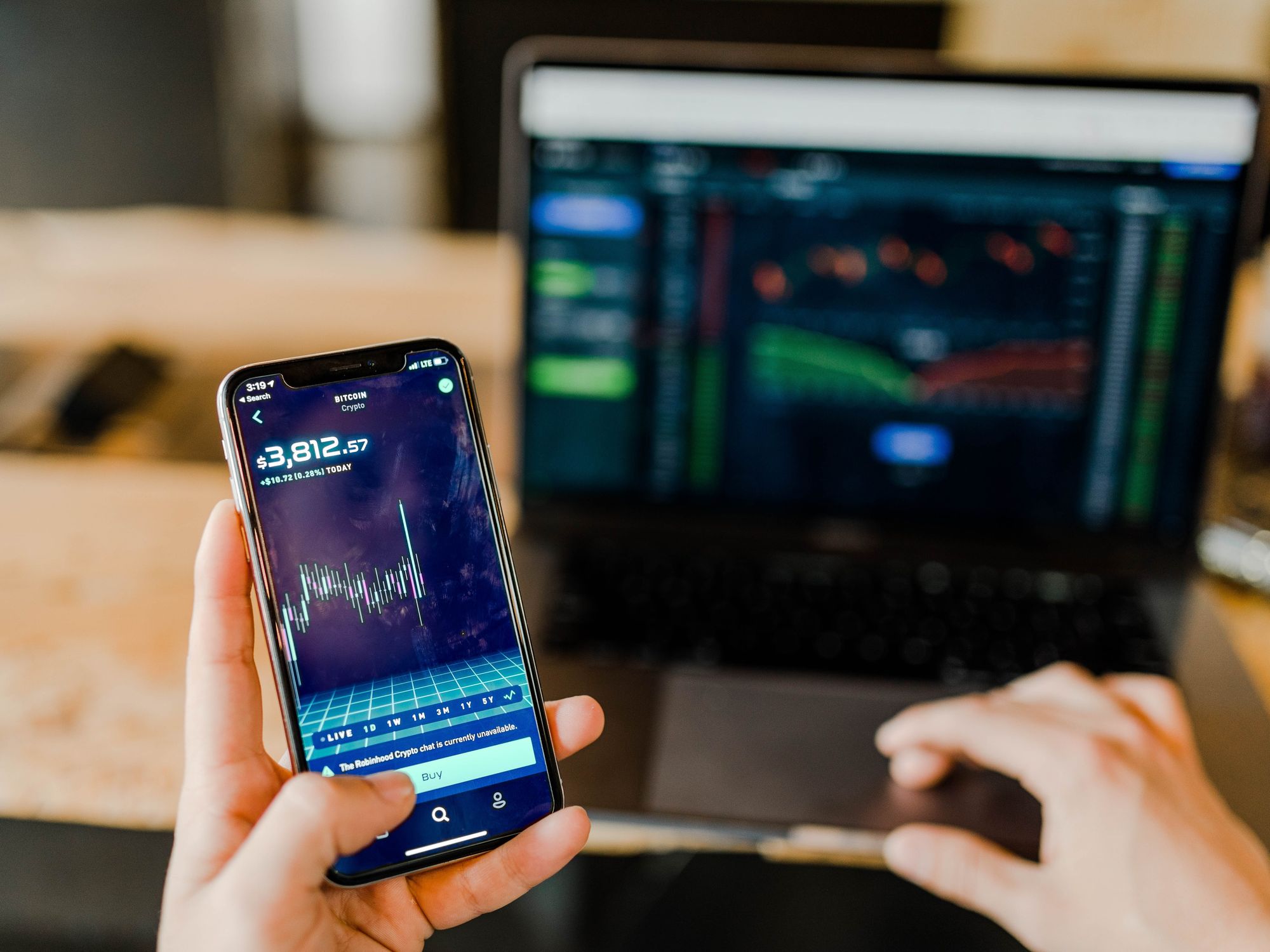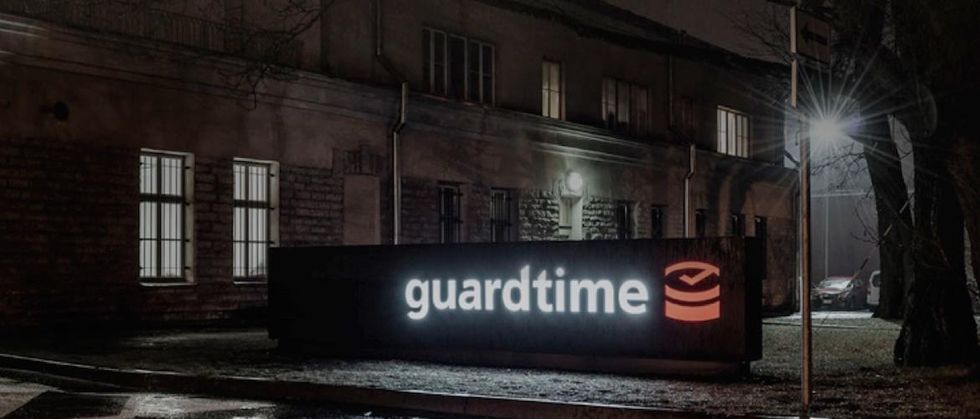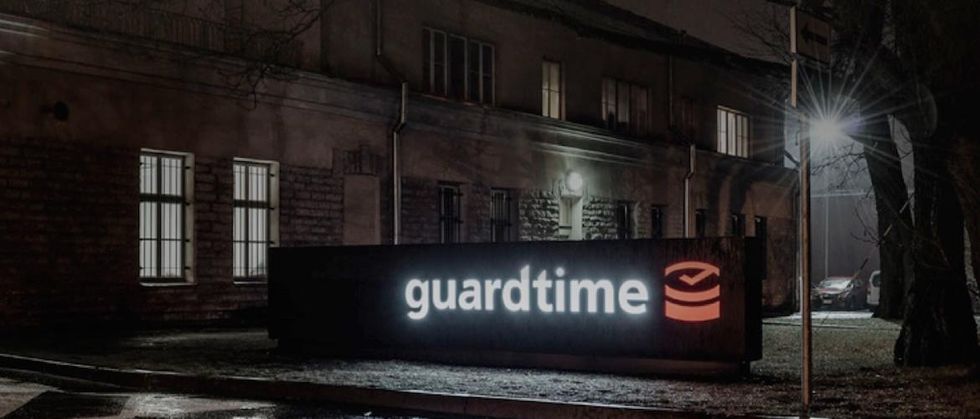The Blockchain Revolutionized the Creator Economy. Can It Do the Same for Health Care?
Keerthi Vedantam is a bioscience reporter at dot.LA. She cut her teeth covering everything from cloud computing to 5G in San Francisco and Seattle. Before she covered tech, Keerthi reported on tribal lands and congressional policy in Washington, D.C. Connect with her on Twitter, Clubhouse (@keerthivedantam) or Signal at 408-470-0776.

A two-year-old Beverly Hills company, Apotheka Systems, has been quietly working with the Department of Veteran Affairs in Washington D.C. to develop a more secure system to keep health records.
A breach hit the Department's portal for making health care payments last year, exposing the data of 46,000 patients. The VA system, which serves 19 million veterans, isn't alone in their concern about security.
Large-scale health care systems have been roiled by data thefts, from Anthem's 2015 data hack to the SolarWinds hack in 2020 that left health care companies vulnerable. The online-moving health industry is increasingly looking for a solution, now that their work relies more heavily on secure, interactive networks.
Apotheka Systems thinks the answer to security lies in blockchain - a system that permanently tracks every change to a record. Last week, it was awarded a patent for a blockchain-backed patient data management product. The six-point system integrates everything from patient intake to payment processing on the blockchain, and that data can be accessed with a patient's fingerprint scan rather than an intake form, which is inherently less secure.
There's a growing market of players using blockchain to secure health data, including Irvine-based Guardtime, a blockchain security company that worked with Hungary and Estonia to establish blockchain protocols in their health care systems. Factom, based in Austin, Texas, creates blockchain platforms only health care workers can access.
The Health Care Industry's Opportunity
Blockchain has famously been used to power cryptocurrency transactions, partly because it's such a secure digital system that can properly track transactions. But the uses for blockchain go far beyond banking. The technology has been embraced by the world of art, supply chains and even voting; the U.S. Postal Service filed a patent on blockchain voting technology in 2020.
Health care could be next. The pandemic has pushed the brick-and-mortar heavy industry further online, and digitization has forced it to grapple with issues of privacy, security and accessibility.
Because of the sensitive nature of health records, strict controls are placed on who can access it and how.

Few clinics and hospitals used telehealth services because of these restrictions, but when the pandemic hit, doctors (like many people working remotely) needed to access sensitive data from their homes. The federal government began to encourage remote medicine by making it easier for Medicare patients to receive telehealth services and relaxing restrictions on where providers can practice.
Apotheka's president, Dennis Maliani, said there's been an uptick in demand for blockchain solutions since the pandemic started. While many quickly hospitals quickly adopted technology to accommodate working from home, they also became vulnerable to massive ransomware attacks during an already devastating pandemic.
"Regardless of the technologies they are implementing, they still have challenges in terms of workflows, in terms of privacy, in terms of security," Maliani said.
Why Blockchain?
Experts say the blockchain's security and interoperability capabilities are crucial in a socially distant world.
"The records can never be deleted, meaning you can always find ways to track it and trace it and have the DNA fingerprints on the record from cradle to the grave," said Nick Vyas, a blockchain expert at the USC Marshall School of Business.
There are multiple benefits to using the blockchain in the health care industry, he added. Blockchain is inherently decentralized, with patient records copied in multiple places and uses layers of scrambled code to hide identifying information. Any changes or additions to the data is kept in a consecutive record, which allows for heightened security protocols when any changes are made to the data. Altered or hacked data is easily traceable.
"And those things can really enhance the traceability of the data, legitimacy of the data and provide a much better platform," Vyas said.
Blockchain can prevent high-cost mistakes in the pipeline of patient care. While patients are often operating between clinicians, lab workers, psychiatrists and pharmacists, patient care parties don't need to manually keep track of physical records. Unique codes, sometimes in the form of fingerprints or DNA scans, are assigned to each patient, so patients with the same name don't get confused.
Diagnoses and workflow can move quicker — a doctor can send a patient's records to a lab technician or radiologist, who can add to it and immediately send it back securely.
"We have the ability to connect all the intermediary and touch points," Vyas said. "I think the more cumbersome that is, the more you can make the case [for using the blockchain]."
Apotheka Systems began in 2018 to create blockchain technologies in health care spaces and began rolling out pilot programs at Pacific Stem Cells in Newport Beach and MetroHealth International, which is based in the United Kingdom.
Perhaps most notably, the company is part of an effort led by the Department of Veterans Affairs to identify retired vets who don't have access to patient care by assigning unique IDs for each veteran, so it becomes easier for the department to reach them and make sure they are getting the care they need.
"For minorities, access to care is very hard. And that is the same thing that we're seeing, especially with the VA community who are retired," Maliani said. "Some of them are disabled. Some of them have mental health problems because of PTSD during the war. So it's things of that nature whereby they see there's a need that technologies like ours can really come in and help."
The Blockchain Has Its Gaps, Too
Despite the potential benefits, the health care industry may not see the same explosion in blockchain technology that the creator world did. While NFTs have captured the imagination of moguls like Jack Dorsey and musicians like Kings of Leon, blockchain adoption in health care is more likely to be a slow burn.
Vyas said blockchain in art and finance has been largely embraced because so many players are involved in the process. With potentially millions of individuals using a financial system, for example, it can be difficult to verify transactions. Whereas, U.S. patient data changes hands in a mostly closed and already highly regulated system, Vyas said. That's because much of health care is siloed into insurance, hospital and network providers — rather than a universal health care system of hundreds millions.
Furthermore, the blockchain isn't infallible. The year 2020 saw more than a hundred Bitcoin hacks, and hackers will look for new ways to overcome blockchain-supported security in the future. Regulatory standards around blockchain inside health care still need to be addressed including making the system compliant with a 1996 federal patient protection law known as HIPAA that gives patients the right to access their records.
For years, the U.S. health care system lagged behind many industries when it came to embracing new technology and software, wary that sensitive health records could be breached. To push digitization, the federal government passed the HITECH Act in 2009 that created privacy and security regulations for digital patient records.
"It's a natural evolution that we're going through that just happened to have started 20 years later than other industries," said Chris Bergstrom, president of the tech-focused, disease management company AmalgamRx. "And that evolution is: we start with things on paper and then we digitize and collect them and then we learn how to do that [keep those records] do that on a go forward basis."
And just like the world has gotten used to sending large amounts of money online, the health care industry is similarly warming up to the way new innovations can cure inefficiencies, Vyas said.
"We're getting used to the idea of stretching our boundaries. We're comfortable with playing in this digital innovation space," he said. "The opportunities could be huge."
Keerthi Vedantam is a bioscience reporter at dot.LA. She cut her teeth covering everything from cloud computing to 5G in San Francisco and Seattle. Before she covered tech, Keerthi reported on tribal lands and congressional policy in Washington, D.C. Connect with her on Twitter, Clubhouse (@keerthivedantam) or Signal at 408-470-0776.




 Image Source: Revel
Image Source: Revel
